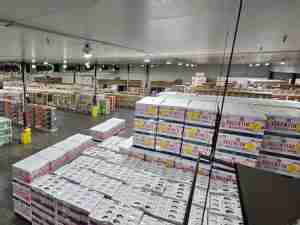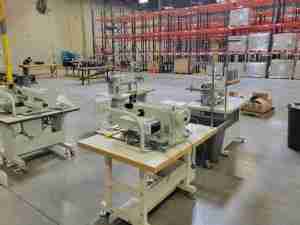By Paul Scott Abbott, AJOT
In an industry increasingly dominated by consolidated global entities, one-person freight forwarding firms such as that of Lesley Cabell of Charleston, SC, are finding and filling specialized niches to survive.
For Cabell, self-described "president and janitor" of Cabell Export, success has entailed taking on shipments that others eschew - like rags destined for Nigeria and personal trailers of circus performers headed to Europe.
"My biggest customers are my competitors, because they refer cargo to me - stuff they don't want," Cabell said. "They don't want to deal with moving Mr. Smith's vehicles and personal belongings."
Cabell, however, does.
"I'm not dealing with the same chemical plant every week," she said. "I'm dealing with these unusual people and finding out what they need, and making sure their needs are taken care of."
In the 10 years since founding her own firm, Cabell has found herself focusing on overseas transport of cars, boats and household goods, very frequently for individuals. Recent clients have included a young couple from Columbia, SC, wanting to get a pair of Humvees to South Africa to help them start a safari business; numerous military personnel from the Carolinas looking to ship their family's second car to Germany (as the US government only pays for transport of one vehicle per relocated soldier); and many circus entertainers seeking to get their trailers from seasonal digs in Sarasota, FL, to performance sites in Europe.
"That's kind of a cool thing," she said.
Discarded clothing items - "rags" described by Cabell as, "the things that Goodwill cannot sell" - are representative of low-value goods for which Cabell arranges transport. They typically go to Nigeria, where salvageable pieces of them are sewn together to make wearable garments.
The advent of the Internet and its enabling of online purchases of vehicles has helped Cabell's business.
"Since E-Bay came along, it has changed a lot of things, and opened a lot of doors," she said, noting that one recent move involved a 1957 fire truck that a collector in England bought from a seller in Kentucky.
Needless to say, today's technology also has brought about substantial changes in the way Cabell conducts her day-to-day business. In the mid-1970s, when, as still a teen, Cabell was beginning her industry career with Harper Robinson & Co., she typed documents on Royal manuals and used teletypes to transmit information. Electronic filings have, of course, made such methods obsolete.
Cabell began focusing on personal effects and vehicles while working in the Charleston export office of German logistics giant Schenker. In 1996, she decided that she would like to work from home and started her own firm, taking that specialty with her.
She commented, "I said to myself, 'Why not specialize in things that none of the larger companies want?'"









